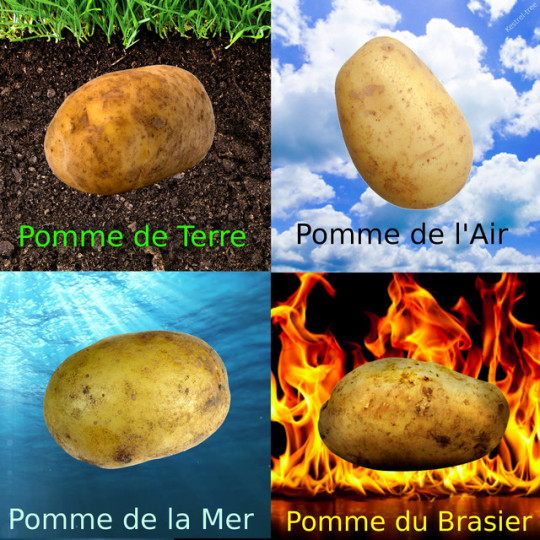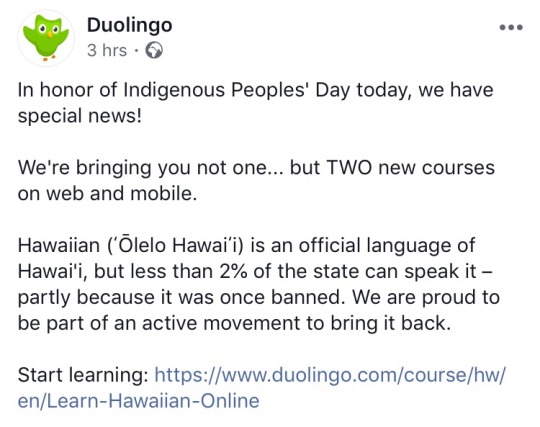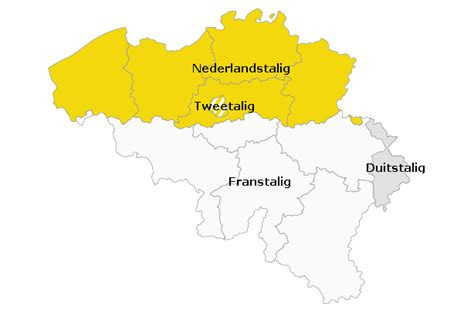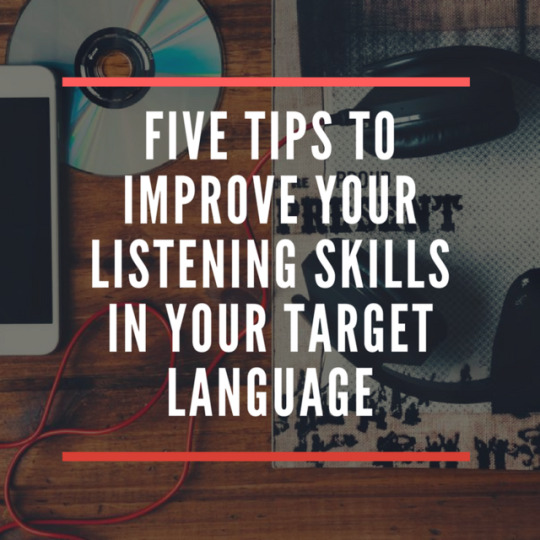Belgian | she/her | Dutch (native), English (C1/C2), French (A1)
Don't wanna be here? Send us removal request.
Text
Is Dit Nu Later by Stef Bos [Translation]
youtube
Wij speelden ooit verstoppertje
We played hide and seek once upon a time
In de pauze op het plein
During break on the square
Wij hadden grote dromen
We had big dreams
Want we waren toen nog klein
Because we were still little then
De ene werd een voetballer
One would be a football/soccer player
De ander werd een held
The other would be a hero
Wij geloofden in de toekomst
We believed in the future
Want ze hadden ons verteld
Because they told us
Jullie kunnen alles worden
You can become anything
Als je maar je huiswerk kent
If you know your homework
Maar je moet geduldig leren wachten
But you need to learn to wait patiently
Tot je later groter bent
Until later, when you’re grown up
Is dit nu later?*
Is this later? / This is later?*
Is dit nu later als je groot bent?
Is this later when you’re grown up?
Een diploma vol met leugens
A diploma filled with lies
Waarop staat dat je volwassen bent
That says that you’re an adult
Is dit nu later?
Is this later? / This is later?
Is dit nu later als je groot bent?
Is this later when you’re grown up?
Ik snap nog steeds niets van het leven
I still don’t understand life
Weet nog steeds niet wie ik ben
Still don’t know who I am
Is dit nu later?
Is this later? / This is later?
Wij spelen nog verstoppertje
We’re still playing hide and seek
Maar niet meer op het plein
But no longer on the square
En de meesten zijn geworden
And most became
Wat ze misschien toen niet wilden zijn
What they maybe didn’t want to be back then
Wij zijn allemaal volwassen
We’re all grown up
Wie niet weg is, is gezien**
Ready or not
En ik zou die hele chaos
And I should see the chaos
Nu toch helder moeten zien
Clearly now
Maar ik zie soms geen hand voor ogen
But sometimes I can’t see a thing
En het donker maakt mij bang
And the dark scares me
Mama, mama, mama
Mommy, mommy, mommy
Laat het licht aan op de gang
Leave the light on in the hall
Is dit nu later?
Is this later? / This is later?
Is dit nu later als je groot bent?
Is this later when you’re grown up?
Een diploma vol met leugens
A diploma full of lies
Waarop staat dat je de waarheid kent
That says you know the truth
Is dit nu later?
Is this later? / This is later?
Is dit nu later als je groot bent?
Is this later when you’re grown up?
Ik snap nog steeds niets van het leven
I still don’t understand life
Weet nog steeds niet wie ik ben
Still don’t know who I am
Is dit nu later?
Is this later? / This is later?
En nu
And now
Nu is het later
Now it’s later
Ik ben vader van een dochter en een zoon
I’m the father of a daughter and a son
Zie de toekomst door hun ogen
(I) see the future through their eyes
Toekomst, waanzin, oorlog
Future, madness, war
In de wereld waar wij wonen
In the world that we live in
Maar ik blijf geloven
But I keep believing
Heb nog steeds mijn dromen
Still have my dreams
Niet verraden, niet verkankerd
Not betrayed, not ruined
Wel veranderd door de jaren
But changed throughout the years
Heb laten losgelaten
Have let let go
Leef alleen nog hier en nu
(I) only live in the here and now
Leef alleen nog hier en nu
Only live in the here and now
Want dit is nu later
Because this is later
Dit is nu later als je groot bent
This is later when you’re grown up
En met vallen en met opstaan kom je steeds dichter bij de kern
And with trial and with error, you keep on getting closer to the core
Dit is nu later
This is later
Dit is nu later als je groot bent
This is later when you’re grown up
En de ruimte is oneindig, zolang je maar je grens verlegt
And space is infinite, so long as you push your boundaries
Dit is nu later
This is later
En de ruimte, de ruimte is oneindig
And space, space is infinite
Zolang je maar je grens verlegt
So long as you push your boundaries
* translation note: this is a bit of a tricky translation. The adding of “nu” (now) changes the meaning of the sentence. If we remove “nu”, the sentence translates to “Is this later?” But by adding the “nu”, he implies that he is dissatisfied, hence the translation “This is later?”
** “Wie niet weg is, is gezien” is something you yell when you’re done counting for hide and seek. eg “.., acht, negen, tien! Wie niet weg is, is gezien!”
#song#lyrics#translation#dutch#nederlands#langblr#language#Liedje#Is dit nu later#Stef bos#Is dit nu later by Stef Bos#npo#radio 2#live#performance#live performance#translation notes#notes
44 notes
·
View notes
Text
At signformyfuture.be, you can sign a petition to ask the next administration for a better policy for the climate.
The site is in both French and Dutch.
This is only for Belgians, but please do reblog this so as many Belgians as possible can see it on this site. Thank you!
#Belgium#Belgians#Belgian#signformyfuture#dutch#french#nederlands#français#sign for my future#link to site#petition#Belgi��#Belgique#petitie#pétition#klimaat#climat#Climate#climate policy
4 notes
·
View notes
Text
I have risen from the dead -- Not. Sadly. Been pretty busy with studying, honestly. I’m home-schooled, so, gotta do everything myself. The good news is: I’m approaching my last exams! Three more to go! The next one I’m studying for is Maths (yaaaay), and after that I’m starting on French (Written and Oral exams for this one). I’ll be updating my progress here starting then! I’ll have done my Maths exam in May, so I’ll start on French after that. Expect some updates from me in or after May!
#bye guys#you guys are great#I love the langblr community#my fave tumblr community#Langblr#French#Exams#I'll return in a few months!
1 note
·
View note
Text


Teenagers in my country being freaking amazing 👌🏼 another March is organized today for all students (university included)
3K notes
·
View notes
Photo

Learning Japanese Master Post #02.
Here’s a master post for video lessons #51-#100 in the Learning Japanese video series, all view-able for free on YouTube! That’s right, each topic gets its own episode! All arranged in order and linked below. Check out all 200+ video lessons at the official YouTube channel here and the other Master Posts: 1 3
youtube
Conjugations of Desu (です)
Conjugating い-Adjectives
Conjugating な-Adjectives
How-to Say “(I/We) want X” and “Do you want X?” (Xがほしいです)
How-to Say “X wants Y” (Third Person) (XはYをほしがっている) (cont.)
“VERBAL NOUN + に(行���/来る)” as “Going/coming to do VERBAL NOUN”
Using adjectives as adverbs
How-to say “try to do VERB” (VERB て-Form + みる)
How-to say “in order to VERB/for the sake of VERBing” (VERB Dictionary Form + ために)
Potential Form (Verb Conjugation)
て- Form VERB + いる as “has VERB-ed” (Resultant State)
X ので Y as “Because X, Y”
How-to say “VERB while VERBING” with Pre-ますForm VERB + ながら + VERB
How-to use しまう to emphasize finality of an action (て-Form + しまう)
How-to say “to VERB2 without doing VERB1” (Negative ない-Form VERB1 + で + VERB2)
How-to say “it is (easy/hard) to do VERB” with Pre-ます-Form VERB + (やすい/にくい)
The たり-Form - たり-Form V1 + たり-Form V2 + する (Do VERB1, VERB2, and other such things)
The て-Form as “and” (CLAUSE1 + て + CLAUSE 2 as “CLAUSE1 and CLAUSE2”)
X までに as “by the time of X”
How-to say “become (ADJECTIVE/NOUN)” with (ADJECTIVE/NOUN) + なる
How-to say “make X (ADJECTIVE/NOUN)” with X を (ADJECTIVE/NOUN) + する
How-to say “Before CLAUSE1, CLAUSE2” (Dictionary Form C1 + 前に + C2)
How-to say “After CLAUSE1, CLAUSE2” (た-Form C1 + 後で + C2)
How-to say “do nothing but VERB” (て-Form VERB + ばかりいる)
How-to say “VERB nothing but NOUN” (NOUN + ばかり + VERB)
How-to say “start VERBing” (Pre-ます-Form VERB + 始める)
How-to say “finish VERBing” (Pre-ます-Form VERB + 終わる)
(Dictionary/Negative-ない)-Form VERB + ようにする as “make an effort (to/not to) VERB”
(Dictionary/Potential/Negative-ない)-Form VERB + ようになる as “it has become that”
How-to say “I think that” (Plain-Form + と思う)
Volitional Form (Verb Conjugation)
Plain Form + かも知れない as “(may/might/possibly) be _”
(Pre-ます-Form VERB/Stem-Form ADJECTIVE) + すぎる as “(VERB too much/too ADJECTIVE)”
Volitional-Form VERB + と思う as “I think I will VERB”
“A (is/isn’t) as ADJ as B” - AはB(と同じぐらい ADJ/ ほど Negative-Form ADJ)
Plain-Form A + のに + B as “Even though A, B”
AてからB as “After A, B”
Plain-Form + でしょう as “probably ___”
How-to say “should do VERB/it’s best to do VERB” (た-Form VERB + 方がいい)
How-to say “should not do VERB/it’s best to not do VERB” (ない-Form VERB + 方がいい)
Conditional ば-Form (Verb Conjugation + Adjective and Noun Conjugation)
ば-Form CLAUSE1 + CLAUSE2 as “If CLAUSE1, CLAUSE2”
Negative ば-Form (なければ) CLAUSE1 + CLAUSE2 as “If not CLAUSE1, CLAUSE2”
たら-Form: C1たらC2 as “After C1, C2” or “If C1, C2” (pt. 1 of 2)
たら-Form: C1たらC2 as “After C1, C2” or “If C1, C2” (pt. 2 of 2)
(Pre-ます-Form VERB/Stem-Form ADJ) + そう(です/だ)as “it looks like ____” (pt. 1 of 2)
(Pre-ます-Form VERB/Stem-Form ADJ) + そう(です/だ)as “it looks like ____” (pt. 2 of 2)
Plain-Form CLAUSE + (そう/だ) as “heard that ___”
て-Form VERB + おく as “to do VERB ahead of time”
How-to ask/allow/deny permission to do something (て-Form VERB + もいいですか)
【☆】★【☆】★【☆】★【☆】★【☆】
Learning Japanese is a YouTube video series with the sole purpose of providing Japanese lessons online for free for anyone at any level! Find 300+ videos of various topics including grammar, vocabulary, kanji, culture, anime, and more with the link below! https://www.youtube.com/user/learnjapanesebod
Join fellow learners of Japanese on our Discord server community! You can follow the series on Facebook | Twitter for updates as well!
Support Learning Japanese on Patreon! Please consider becoming a patron to support the continuation of this video series and the development of our curriculum! https://www.patreon.com/learningjapanese
This video series is presented by becauseofdreams http://becauseofdreams.com/
8K notes
·
View notes
Photo

Ne forget pas les quatres food groupes mes amis!
230K notes
·
View notes
Text


BIG NEWS
#!!!!!!!!!!#I'M SCREAMING!!!#HAWAIIAN#I'M EXCITED#I'VE BEEN WANTING TO LEARN THAT SO BAD#OFF TO DUO WE GO
257K notes
·
View notes
Text
Use the polite form in German to be rude.
So a friend wanted to practice German with me and started to speak in the polite form.
I told him that it’s not necessary to use it with me because 1. we’re about the same age and 2. we’re talking over the internet.
He asked me what the second thing has to do with it. I told him that I would use the polite form to speak with a 50 years old in real-life but not if he is messaging me over the internet.
Then he asked what I’m talking about, because I once sent him a screenshot of a weird old men. And I used the polite form while talking to him.
The thing is, this 50 years old man tried to hit on me and I was using the polite form to make clear (for him), how much older he is. So he would stop with this bullshit. But he was like all the other old men who try to hit on me and said “oh you don’t need to use the polite form with me, we’re basically around the same age”. Sorry b*tch, we’re what? I’m 22. Even if you double my age I’m still younger!
I kept using the polite form, which makes them angry every single time because it basically means “You’re so much older, don’t even dream of sleeping with me. It’s disgusting.”
And I think it’s really funny how you can use a polite form to be rude af and make people angry by using it with them.
Languages. Weird little things.

1K notes
·
View notes
Text
My Current Favorite French Resources
Watching
Français Authentique - Youtube channel featuring advice for language learners and excellent listening practice. All in French with French subtitles; rate of speaking slowed. Frequently updated. Good for: easier listening practice, improving vocabulary and grammar, improving accent, immersion, intermediate learners.
7jours - News channel in French with French subtitles. Frequently updates. Good for: upper intermediate to advanced learners, those studying for DELF, listening practice, immersion, getting used to native speaker speed.
Quotidien - Yann Barthès lives on! I often watch his new show online. Good for: advanced learners, immersion, learning while being entertained, vocabulary.
Fais Pas Ci, Fais Pas Ca - French television mockumentary show following the lives of two families. Very clever. No link because you’ll need to use a VPN or stream illegally (afaik), and everyone has their own favorite places for that stuff. Message me if you want a link to where I watch it. No subtitles (usually). Good for: advanced learners, learning while being entertained, immersion, listening practice, getting used to native speakers.
Apps
Advanced French Expressions Memrise Course - A course focused on phrases and idioms employed by the French. Note: some of these seem very antiquated to me, so I often google around to see how often they’re getting used. Not recommended for beginners. Good for: advanced learners, increasing vocabulary, practicing pronunciation.
More Advanced French Memrise Courses - More courses by the same user, focusing on advanced French expressions and idioms. Good for: advanced learners, increasing vocabulary, practicing pronunciation.
Clozemaster - Enormous catalog of French sentences to get your diction and syntax sounding more natural. Dozens of levels from ultra-beginner to super-advanced. Good for: improving vocabulary, sentence structure practice, just finished Duolingo and want to move on.
r/French - Reddit’s French learner’s subreddit. Good to browse every now and again because it’s filled with interesting links to movies, videos, etc. Good for: if you get bored easily and want to change it up, connecting with others, casual but genuine practice.
Reading
Courrier International - News source with international articles translated into French. Good for: intermediate learners, improving vocabulary, reading practice, on-the-go learners without much time.
Le Temps: Swiss French news site, featuring longer articles. Good for: intermediate to advanced learners, those studying for DELF, those who want longer reads.
The books and short stories of Eric-Emmanuel Schmitt - Easy to read, interesting and heartwarming books and short stories. One of my new favorite French authors. Good for: to-read after Le Petit Prince, lower intermediate learners, improving vocabulary, immersion.
The books of Anna Gavalda - Modern fiction. Higher reading level than Schmitt, but still accessible. Written recently, so good exposure to current everyday French. Good for: intermediate to upper-intermediate learners, immersion, vocabulary.
The books of Marc Levy - Modern fiction, roughly the same level and benefits as the above. Good for: intermediate to upper-intermediate learners, immersion, vocabulary.
Note: I get a lot of French paperbacks from my local library, including modern fiction. I live in a moderately large city, which helps, but in any case, I recommend checking out your local library to see if they have paperbacks and other books in French. You might be surprised!
Listening
French Radio App - Stream almost any French radio station you can imagine. My favorites are RFI, France Inter, and France Info. Good for: intermediate to advanced learners, immersion, those studying for DELF.
Pronunciation
Forvo - Type in any word, hear it pronounced by native speakers. Good for: anyone who struggles with French pronunciation, particularly reading a word and knowing how it will be pronounced.
Introduction to French Phonology - What American diplomats are given to improve their pronunciation before heading to a French-speaking nation. Not for the easily bored; this course is dry but immensely helpful. Good for: anyone who struggles with pronunciation, particularly actually forming the sounds particular to French.
Blogs
There are so many, but I’ll just highlight @frenchaise and @french-ement-votre as two that are putting out a lot of really helpful content for me these days.
Note: This list isn’t exhaustive. I have a lot of French resources that I use, but these are my current go-to items for immersion and practice. If you are looking for more resources of a particular type, feel free to message me and I’ll see what I can dig up.
I’ll be back to hopefully doing vocab lists and phrases soon; I’ve been extremely busy the past couple months and very much focused on Spanish for work, but I’m getting back into French in lieu of starting graduate school soon.
Cheers!
2K notes
·
View notes
Link
“967,627 have signed. Let’s get to 1,000,000!”
191 notes
·
View notes
Text
What’s the difference between Flemish and Dutch?
Do they speak Dutch in Belgium?/I thought people spoke French in Belgium? Are Dutch and Flemish separate languages/mutually intelligible? What’s a word that’s different? What are the differences?
As a Flemish person, I get these questions relatively often when people discover that yes, my native language is Dutch, but no, I don’t live in the Netherlands. I live in Belgium. In case you don’t know where that is (which most people know but I never take risks, we’re small), maybe the tip ‘Brussels’ will help you and if not, google maps exists. In this post I will try to give some guidelines for the differences between Dutch and Flemish. They’re not very big, but they exist.
Do they speak Dutch in Belgium? / I thought people spoke French in Belgium?
Yes, we speak Dutch in Belgium and yes, we speak French in Belgium. Some people even speak German! The map below shows where people speak which language.
Nederlandstalig: Dutch Franstalig: French Duitstalig: German Tweetalig: French and Dutch (mostly French)

Are Flemish and Dutch separate languages/mutually intelligible?
Flemish and Dutch are not separate languages. Flemish people and Dutch people can understand each other perfectly. They’re just two variants of the same language, each subdivided in other variants, regiolects and dialects.
What’s a word that’s different? What are the differences?
Words
For some word differences, I kindly redirect you to this post I made a while ago.
We always understand each other, but we don’t always use the same words. For example, while Dutch people would often say ‘hartstikke’ before an adjective to express that something is very much so (hartstikke leuk = really fun), Flemish people would rather use kei- or super- (superleuk/keileuk = really fun). Super- is also used in the Netherlands (thank you @join-the-dutch-clan for sharing your native knowledge), but it’s more common in Flanders.
Sometimes we both use a certain word, but there’s a different meaning. This is a bit of a vulgar example, but it’s the best I could come up with. If someone from Flanders says ‘poepen’, they mean ‘to fuck’. If someone from the Netherlands says it, they mean ‘to shit’. What a beautiful language it is.
When you are learning Dutch, you will probably learn the Dutch variants of words, because the Flemish variants are not always considered proper synonyms. But we are valid.
Tussentaal
‘Tussentaal’ (lit. in between language) is a typically Flemish phenomenon. It’s something between a dialect and Standard Dutch. It’s what people in Flanders use every day. Some characteristics are of course typically Flemish words and the use of ‘ge/gij’ instead of ‘je/jij’ (more about this later).
Ge/gij
I gave this answer like a year ago, it’s worth checking out I think. In general: ge/gij is a Dutch pronoun that is much more used than je/jij in Flanders and is informal here, while in the Netherlands you almost never use it and it’s super super formal (as in, you only use it to talk to God and the Queen). Its conjugations can also differ.
Pronunciation and accent
Only thing you need to remember about this: Flemish people speak normally and Dutch people speak weirdly. Okay just kidding. But it’s true.
What Dutch people tend to do, is giving vowels an extra consonant. So when Flemish people say ‘oo’, they say ‘oow’. Obviously it’s not always very distinct, but it’s often something you can hear if you pay attention to it.
Our ‘g’ is also different. Dutch people produce it with their throat as well I think? No idea how they do it. Flemish people just produce it in the back of their mouth. (look I’m far from a linguist and these explanations might be very off but I am just trying. If anyone with some knowledge about this can correct this, that would be greatly appreciated.)
Flemish people often have a so called French or Italian r: we often roll our r’s. Not all Flemish people can do it, but it’s more common here than in the Netherlands.
What you might hear in in Flanders (and with Flanders in this case, I mean the west of the country, being the province of West-Vlaanderen and also a bit Oost-Vlaanderen) is that people pronounce a ‘g’ is a ‘h’ and they don’t pronounce h’s. But that’s only something they do in the west and it’s a thing we laugh with.
That’s all I can think of for the moment. I hope you enjoyed the ride and realized that Flemish is obviously much, much better than Dutch Dutch.
#Dutch#Dutch langblr#Belgium#Netherlands#nederlands#vlaams#Difference#Post Addition#pronunciation#IPA transcriptions
370 notes
·
View notes
Text
Article 13 has been approved by EU. It’s worse than Net Neutrality has ever been. I don’t even know if we will have any access to Tumblr, Pinterest, Ao3 or even Instagram. Memes are probably dead, just like reactions, fanfictions and gifsets. Everyone in EU is in danger that they will not have access to their favorite sites. But I haven’t seen a SINGLE post about it on my dash because Americans doesn’t give a damn.
Also, I’m in Europe and ngl, had no idea this was even an article up for debate let alone it being fucking passed.
82K notes
·
View notes
Photo

We’ve all been there. Whether it’s a commercial on the radio or TV, or eavesdropping on the subway, our ears perk up when we hear someone speaking in our target language. Depending on your level, you may find it hard to understand what they’re saying. Here is a list of some tips and resources that can help you improve your listening skills
1. Do a LOT of active listening.
One of the most useful exercises that one can do when practicing a new language is active listening. Search for an audio file, an audio book, a podcast, or a Youtube video (TED Talks are particularly useful) with a transcription. Listen to the audio file and follow along closely with the accompanied text. The app Lingq has dialogues with both audio and texts. Try listening to the audio without the text first, and then go back and listen while following the text. Which words did you recognize? Which words did you have trouble recognizing?
Making strong connections between the sound of the word and how it is written will help you recognize it in the future. Listen to the word, read it, write it, and speak it. The “Easy Languages” series on Youtube covers multiple languages, and has subtitles in both your target language and English. Follow along while paying close attention to the words and the sounds that correspond to them. Rewind and listen multiple times if you have to!
2. Don’t let frustration get the best of you. Give your brain time to digest the sounds and the melody of the languages. Getting frustrated only sets up a “mental block” that will prevent you from making any progress. Take a deep breath, put your headphones in and enjoy the learning process.
3. Listen to something that interests you. You might feel more encouraged to actively listen to something that actually interests you. This is a great way for your brain to become accustomed to the sounds of certain topic-specific words that you might use or hear in the future. n your target language, search “videos about _____ with a transcription,” or “podcasts with transcription.” Search for a topic that interests you and start listening! Here is a website that has TONS of material for a multitude of languages: http://www.languagelinksdatabase.com/free-language-resources/
4. Listen to music. Listening to music is a great way learn new vocabulary. Although the words are being sung and not spoken, it is still a great way for your brain to internalize the sounds of the language, and to learn new vocabulary as well! Ask some native speakers to recommend you some songs. Search for the lyrics on Google and follow along!
5. Read lips. Whether you’re watching a show on Netflix, or speaking with someone face-to-face, reading will help both your listening skills and your pronunciation. Applying your knowledge of the way that sounds are made to the movements of the other person’s lips will help your brain distinguish the words that they’re saying. This will help you pick out words that you might not have recognized otherwise!
Don’t forget — exposure is key! Do as much active listening as possible, and supplement it with passive listening. Radios, podcasts, the news, music, and just chatting with native speakers can help. Good luck with your language learning journey, and feel free to share any other methods for improving listening skills.
1K notes
·
View notes
Photo

contractions/reductions
in sentences with a conjugated modal verb and one infinitive, the infinitive can be omitted if its meaning can be assumed by the relationship between the subject(s) and object(s) sie will ein glas milch haben. > sie will ein glas milch. kann er deutsch sprechen? > kann er deutsch? wir wollen nach deutschland reisen. > wir wollen nach deutschland. ich will zu dir gehen. > ich will zu dir. das kind muss ins bett gehen. > das kind muss ins bett. das darf ich nicht machen. > das darf ich nicht.
the verb infinitive ending -en can become -’n gehen > geh’n sehen > seh’n wollen > woll’n lecken > leck’n
-e can be removed from the end of conjugated verbs habe > hab’ hätte > hätt’ trage > trag’ wäre > wär’
es can be reduced to -’s on the end of the preceding word du es > du’s ich es > ich’s los geht es > los geht’s was gibt es? > was gibt’s?
the ei- can be removed from the beginning of the indefinite article ein > ’n eine > ’ne einen > ’nen einem > ’nem einer > ’ner irgendeine > irgend’ne etc.
if du proceeds its conjugated verb, it can be reduced to -e on the end of the preceding verb bist du > biste hast du > haste kannst du > kannste warst du > warste
after prepositions, ein/den/einen becomes -’n, dem becomes -’m and das becomes -’s auf dem > auf’m durch das > durch’s für das > für’s für ein/den/einen > für’n hinter dem > hinter’m mit dem > mit’m (> mim) unter das > unter’s etc.
dar- becomes dr- and her- becomes r- darin > drin darauf > drauf heraus > raus herein > rein etc.
in questions with a second or third person singular conjugated verb, “denn” can be moved to directly proceed the verb, where it is reduced to -’n, causing the t sound to be reduced to a glottal stop when pronounced was ist das denn? > was is(t)’n das? wie heißt du denn? > wie heiß(t)’n du?
the above contractions/reductions are often used together das wäre es > das wär’s ich habe es > ich hab’s
some other words that can be reduced/contracted andere > andre besondere > besondre gerade > grade > grad irgendetwas > irgendwas/etwas > was irgendwelche > welche ist > is’ ist so > isso nicht > nich (north) or net/nit (south) nichts > nix mal > ma schonmal > schoma so ist es > so isses
other
corresponding relative pronouns instead of third person pronouns sie > die / ihr > der er > der / ihn > den / ihm > dem sie > die / ihnen > denen
instead of “ja” jap jepp jo joa ju jupp
instead of “nein” nee/ne nöö/nö
instead of “oder?” at the end of a sentence to make it a question ne? (north) gell? (south) nicht wahr? stimmt’s?
make sure you know how to use these words, they will help make you sound less sharp and robotic aber auch bloß doch eben eh einmal erst etwa gerade halt ja mal na naja nun nur ohnehin schon sowieso vielleicht wohl
fillers/expressions of surprise ach/achso - aha/i see/oh okay alter/digga/mann - dude/man/bro/mate ah/äh/eh/oh - ah/oh ahm/ähm/ehm/öhm - um/erm au/aua/autsch - ow/ouch bäh/igitt/pfui - ew/ugh/yuck boah - wow ey - hey/jeez hä? - huh? och - ach/ugh oha - wow (oh mein) gott - (oh my) god was zur hölle/was zum teufel - what the hell/what the fuck
texting/informal online useage
abbreviations bb - bis bald bd - bis dann bissn/bissl - bisschen/bissel dad - denk an dich eig - eigentlich einf - einfach ev - eventuell gn8 - gute nacht hdf - halt die fresse hdl - hab dich lieb hdgdl - hab dich ganz doll lieb hdgdlfiuebaedwuwz - hab dich ganz doll lieb für immer und ewig bis ans ende der welt und wieder zurück ida - ich dich auch ild - ich liebe dich irgendwann - iwann irgendwo - iwo irgendwer - iwer etc. jz - jetzt ka - keine ahnung kb - kein bock kd - kein ding kp - kein plan/kein problem lg - liebe grüße lw - langweilig mfg - mit freundlichen grüßen mmn - meiner meinung nach vllt - vielleicht wg - was geht? wmds - was machst du so?
laughing haha - normal laugh hihi - giggle hehe - cute/evil/annoying laugh höhö/hühü - cute/annoying/sarcastic/satirical/stupid laugh
pronunciation
-en, -em and -el are pronounced as n m and l respectively heißen > heißn diesem > diesm vogel > vogl
short i can sound like an unstressed ü or like it has been omitted altogether schwimmen > schwümmn sind > sünt ich habe es > chaps
the combinations ls and ns can sound like there is a t before the s als > alts ich will es > chwüllts eins > eints übrigens > übrignts
-en before d and t is pronounced as n duden > dudn schneiden > schneidn t is reduced to a glottal stop braten > bra’n retten > re’n in the case of words that end in -nden, d is sometimes reduced to a glottal stop finden > findn > fin’n
-en after g and k is pronounced as ng magen > magng flaggen > flaggng k is reduced to a glottal stop packen > pa’ng zocken > zo’ng in the case of words ending in -nken, n is pronounced as ng sinken > sing’ng
-en after b and p is pronounced as m krabben > krabbm mobben > mobbm p is reduced to a glottal stop waschlappen > waschla’m klappen > kla’m in the case of haben, b is sometimes omitted altogether haben > habm > ham
13K notes
·
View notes
Text
What’s the difference between Flemish and Dutch?
Do they speak Dutch in Belgium?/I thought people spoke French in Belgium? Are Dutch and Flemish separate languages/mutually intelligible? What’s a word that’s different? What are the differences?
As a Flemish person, I get these questions relatively often when people discover that yes, my native language is Dutch, but no, I don’t live in the Netherlands. I live in Belgium. In case you don’t know where that is (which most people know but I never take risks, we’re small), maybe the tip ‘Brussels’ will help you and if not, google maps exists. In this post I will try to give some guidelines for the differences between Dutch and Flemish. They’re not very big, but they exist.
Do they speak Dutch in Belgium? / I thought people spoke French in Belgium?
Yes, we speak Dutch in Belgium and yes, we speak French in Belgium. Some people even speak German! The map below shows where people speak which language.
Nederlandstalig: Dutch Franstalig: French Duitstalig: German Tweetalig: French and Dutch (mostly French)

Are Flemish and Dutch separate languages/mutually intelligible?
Flemish and Dutch are not separate languages. Flemish people and Dutch people can understand each other perfectly. They’re just two variants of the same language, each subdivided in other variants, regiolects and dialects.
What’s a word that’s different? What are the differences?
Words
For some word differences, I kindly redirect you to this post I made a while ago.
We always understand each other, but we don’t always use the same words. For example, while Dutch people would often say ‘hartstikke’ before an adjective to express that something is very much so (hartstikke leuk = really fun), Flemish people would rather use kei- or super- (superleuk/keileuk = really fun). Super- is also used in the Netherlands (thank you @join-the-dutch-clan for sharing your native knowledge), but it’s more common in Flanders.
Sometimes we both use a certain word, but there’s a different meaning. This is a bit of a vulgar example, but it’s the best I could come up with. If someone from Flanders says ‘poepen’, they mean ‘to fuck’. If someone from the Netherlands says it, they mean ‘to shit’. What a beautiful language it is.
When you are learning Dutch, you will probably learn the Dutch variants of words, because the Flemish variants are not always considered proper synonyms. But we are valid.
Tussentaal
‘Tussentaal’ (lit. in between language) is a typically Flemish phenomenon. It’s something between a dialect and Standard Dutch. It’s what people in Flanders use every day. Some characteristics are of course typically Flemish words and the use of ‘ge/gij’ instead of ‘je/jij’ (more about this later).
Ge/gij
I gave this answer like a year ago, it’s worth checking out I think. In general: ge/gij is a Dutch pronoun that is much more used than je/jij in Flanders and is informal here, while in the Netherlands you almost never use it and it’s super super formal (as in, you only use it to talk to God and the Queen). Its conjugations can also differ.
Pronunciation and accent
Only thing you need to remember about this: Flemish people speak normally and Dutch people speak weirdly. Okay just kidding. But it’s true.
What Dutch people tend to do, is giving vowels an extra consonant. So when Flemish people say ‘oo’, they say ‘oow’. Obviously it’s not always very distinct, but it’s often something you can hear if you pay attention to it.
Our ‘g’ is also different. Dutch people produce it with their throat as well I think? No idea how they do it. Flemish people just produce it in the back of their mouth. (look I’m far from a linguist and these explanations might be very off but I am just trying. If anyone with some knowledge about this can correct this, that would be greatly appreciated.)
Flemish people often have a so called French or Italian r: we often roll our r’s. Not all Flemish people can do it, but it’s more common here than in the Netherlands.
What you might hear in in Flanders (and with Flanders in this case, I mean the west of the country, being the province of West-Vlaanderen and also a bit Oost-Vlaanderen) is that people pronounce a ‘g’ is a ‘h’ and they don’t pronounce h’s. But that’s only something they do in the west and it’s a thing we laugh with.
That’s all I can think of for the moment. I hope you enjoyed the ride and realized that Flemish is obviously much, much better than Dutch Dutch.
#Langblr#Dutch#Dutch langblr#Flemish#Belgium#Netherlands#Difference#nederlands#vlaams#a very good explanation
370 notes
·
View notes
Text
Milo Meets Kida: Translated! (aka milo fails at atlantean)

Origin: Atlantean
“Who are you strangers and where did you come from?”

Origin: Atlantean
(HALTINGLY & with a bad, very american accent)
“Who…are you strangers and….where did you come from?”

Origin: Atlantean
“Your manner of speech is strange to me.”

Origin: Atlantean
“I….travel…friend!”

Origin: Atlantean
“…I travel friend…
(impatiently) …You are a friendly traveler?”
(does anyone else love how she’s correcting his shitty atlantean LOL bbies ♥)

Origin: Latin (look at this frickin dweeb switching into latin)
“So, my friend, I am a traveler!”

Origin: Latin
“You speak the language of the Romans!”

Origin: French (milo plz)
“Do you speak French?”

Origin: French
“Yes, sir!”
264K notes
·
View notes
